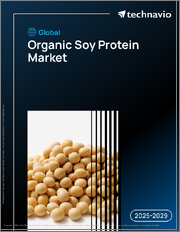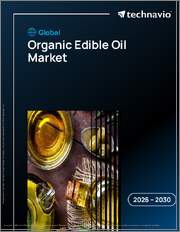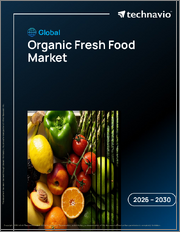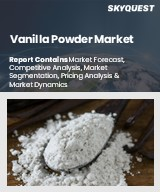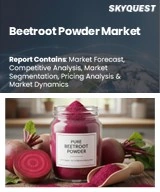
|
시장보고서
상품코드
1789109
아카시아 섬유 파우더 시장 분석과 예측 : 유형, 제품, 용도, 형태, 최종 사용자, 기술, 성분, 프로세스, 전개, 기능성(-2034년)Acacia Fiber Powder Market Analysis and Forecast to 2034: Type, Product, Application, Form, End User, Technology, Component, Process, Deployment, Functionality |
||||||
세계 아카시아 섬유 파우더 시장 규모는 2024년 8억 달러에서 2034년 14억 달러로 확대되어 약 5.8%의 연평균 복합 성장률(CAGR)로 성장할 전망입니다. 아카시아 섬유 파우더 시장은 소화기계의 건강을 돕는 것으로 유명한 아카시아 나무에서 유래하는 천연식이 섬유의 생산과 유통을 포함합니다. 이 시장을 견인하고 있는 것은 장 건강에 대한 소비자의 의식 증가와 식물 유래의 천연 소재에 대한 수요입니다. 클린 라벨 제품과 지속가능성에 중점을두고 음식, 영양 보조 식품, 제약 업계에 서비스를 제공합니다. 제품 처방의 혁신과 기능성 식품에의 용도 확대가 성장을 뒷받침하고 있습니다.
세계 관세와 지정학적 긴장은 특히 동아시아의 아카시아 섬유 파우더 시장에 큰 영향을 미칩니다. 일본과 한국은 공급원의 다양화와 현지 생산 능력에 대한 투자로 관세 인상을 극복하고 있습니다. 중국은 관세의 영향을 완화하기 위해 국내 생산을 강화하고 있으며 전략적으로 자립에 중점을 두고 있음이 분명합니다. 대만은 공급망에서 매우 중요한 국가이지만, 지정학적 싸움, 특히 미국과 중국의 관계에 취약합니다. 식이섬유의 부모시장은 건강 동향과 천연제품에 대한 수요에 견인되어 세계적으로 강력한 성장을 이루고 있습니다. 2035년까지 시장 발전은 지역 간 협력과 지속 가능한 조달 혁신에 달려 있습니다. 중동 분쟁은 세계 공급망을 혼란스럽게 하고 에너지 비용을 증가시키고 이들 국가의 생산과 유통에 영향을 미칠 수 있습니다.
아카시아 섬유 파우더 시장은 식이 섬유의 이점에 대한 소비자 의식 증가에 견인되어 현저한 성장을 이루고 있습니다. 음식 및 음료 부문이 가장 호조적이며 베이커리 및 과자류가 널리 소비되기 때문에 선두입니다. 건강을 중시하는 소비자들이 섬유질이 풍부한 보충제를 찾으면서 건강식품도 그 뒤를 따랐습니다. 퍼스널케어 부문에서는 아카시아 섬유를 배합한 스킨 케어 제품이 유망한 가능성을 나타내고, 이것은 천연 소재와 지속 가능한 소재에 대한 동향의 고조를 반영하고 있습니다.
반려동물 주인이 소화기계의 건강을 점점 더 우선시하고 있기 때문에 반려동물 식품 산업은 두 번째 고성능 부문으로 부상하고 있습니다. 이 부문은 인기와 편의성 때문에 드라이 반려동물 식품 제형이 특히 주목됩니다. 비건과 식물 기반 식생활 증가는 수요를 더욱 촉진하고, 아카시아 섬유는 이러한 제형에 필수적인 성분으로 작용합니다. 식감과 맛 향상에 초점을 맞춘 제품 개발 혁신은 시장 기세를 유지하는 데 매우 중요합니다. 시장 확대는 전략적 파트너십과 R&D 투자 증가로 강화되고 있습니다.
아카시아 섬유 파우더 시장은 시장 점유율, 가격 전략, 제품 혁신의 역동적인 변화를 경험하고 있습니다. 주요 기업은 천연식이 섬유 수요 증가에 대응하기 위해 제품 라인 확대에 주력하고 있습니다. 이로 인해 신제품 출시가 급증하고 소비자 선택이 늘어나 경쟁사와의 가격 경쟁이 격화되고 있습니다. 이 시장은 소비자의 취향과 지역 수요의 다양성을 반영하여 프리미엄 제품부터 가치 제품까지 다양한 제품 라인업을 특징으로 합니다.
아카시아 섬유 파우더 시장 내 경쟁은 치열하고, 각 회사는 품질, 지속가능성 및 혁신에 의해 차별화를 도모하고 있습니다. 특히 북미와 유럽에서는 엄격한 지침이 제품의 표시와 건강 강조표시를 규정하고 있으며, 규제의 영향이 큰 역할을 하고 있습니다. 경쟁업체와의 비교분석을 통해 투명성이 높은 조달과 환경친화적인 포장을 요구하는 경향이 밝혀졌습니다. 이러한 요인은 소비자의 신뢰와 브랜드 충성도를 형성하는데 있어서 매우 중요하며 전략적 파트너십과 시장 확대를 위한 절호의 환경을 창출하고 있습니다. 건강 지향 소비자 동향과 제품 혁신을 장려하는 규제 프레임워크를 통해 업계는 성장 궤도에 있습니다.
유럽은 천연 및 유기농 식이 보조제에 대한 강한 성향을 보이며 그 뒤를 따르고 있습니다. 독일과 프랑스 등의 국가들이 최첨단을 달리고 있으며, 건강 지향이 강한 소비자 기반의 혜택을 받고 있습니다. 아시아태평양은 가처분 소득 증가와 건강 의식 증가에 힘입어 급속한 확대를 경험하고 있습니다.
중국과 인도는 인구가 많고 건강에 대한 관심이 높아지면서 주요 국가로 부상하고 있습니다. 라틴아메리카와 중동 및 아프리카는 신흥 시장으로 견인력을 늘리고 있습니다. 브라질과 남아프리카는 식이섬유의 건강상의 이점에 대한 의식이 높아지고 보다 건강한 라이프스타일로의 변화로 수요가 증가하고 있습니다.
중요한 합병으로 인그레디언 인코포레이티드는 유기 아카시아 섬유 파우더를 전문으로 하는 소규모 경쟁업체를 인수하여 천연 소재 분야의 포트폴리오와 시장에서의 존재감을 강화하는 것을 목표로 하고 있습니다. 이 인수는 클린 라벨 제품에 대한 수요 증가에 대응하는 잉글레디언의 능력을 강화할 것으로 기대됩니다.
미국에서는 FDA가 아카시아 섬유를 포함한 식이 섬유의 표시에 대한 지침을 업데이트하는 등 규제 변화도 나타났습니다. 이 정책 전환은 제품 배합 및 마케팅 전략에 영향을 미치고 기업의 기술 혁신을 촉진할 것으로 예측됩니다.
기술 혁신의 면에서는 대기업 건강 및 웰니스 브랜드의 신제품이, 아카시아식이 섬유의 참신한 블렌드를 특징으로 하고 있어, 소화기계의 건강 증진 효과가 기대되고 있습니다.
마지막으로 공급망 역학은 아카시아 검의 주요 조달 지역인 서아프리카의 최근 물류 과제에 의해 영향을 받고 있습니다.
주요 동향과 촉진요인 :
아카시아 섬유 파우더 시장은 장의 건강과 식이 섬유의 이점에 대한 소비자의 의식 증가에 의해 현저한 성장을 이루고 있습니다. 소비자가 합성 첨가물을 대체하는 더 건강한 것을 찾고 있기 때문에 천연 소재와 유기농 소재에 대한 수요가 이 시장을 끌어 올리고 있습니다. Prebiotics 특성으로 알려진 아카시아식이 섬유는 건강 지향적인 개인과 소화 시스템에 불안한 사람들 사이에서 지지를 받고 있습니다.
중요한 동향은 식물 기반 채식의 인기가 높아지고 있다는 것입니다. 아카시아 식이 섬유는 식물 유래이기 때문에 이러한 식생활의 기호에 딱 맞는 시장에서의 소구력을 높이고 있습니다. 또한 투명성과 최소한의 가공을 강조하는 깨끗한 라벨 운동은 아카시아 섬유를 다양한 식품에 포함시키는 것을 지지합니다. 이 추세는 천연 성분의 사용을 제창하는 규제 기관에 의해 더욱 향상되었습니다.
시장은 또한 기능성 식품 및 음료 분야의 확대에 의해 견인되고 있습니다. 제조업체는 아카시아 섬유의 다용도성과 건강상의 이점을 살려 스무디, 스낵, 보충제 등의 제품에 아카시아 섬유를 도입하게 되어 왔습니다. 또한 가공 및 추출 기술의 기술적 진보로 아카시아 섬유 생산의 품질과 효율성이 향상되었습니다. 이 기술 혁신은 비용을 낮추고 시장 접근성을 높이고 업계 기업에게 유리한 기회를 제공할 것으로 예측됩니다.
억제요인과 도전 :
아카시아 섬유 파우더 시장은 현재 몇 가지 중요한 억제요인과 도전을 가지고 있습니다. 주요 과제는 가격 전략과 이익률에 영향을 미치는 원재료 비용의 변화입니다. 이러한 변동은 공급망에 영향을 미치는 환경 요인과 지정학적 긴장으로 인해 발생합니다. 또한, 보다 확립된 섬유원에 비해 아카시아 섬유의 건강상의 이점에 대한 소비자의 인식이 제한적이라는 것이 시장 확대를 방해하고 있습니다. 이러한 인식 부족으로 잠재적 소비자 채택률이 둔화되고 있습니다. 게다가 다양한 지역에 걸친 엄격한 규제 체계는 제조업체에 컴플라이언스 부담을 부과하고 운영 비용을 증가시키고 제품 출시를 지연시킵니다. 시장은 또한 브랜드 인지와 유통망이 확립되어 있는 대체식이섬유와의 격렬한 경쟁에도 직면하고 있습니다. 마지막으로, 아카시아식이 섬유를 다양한 제품 처방에 통합하는 복잡성이 기술적 과제가 되고, 많은 연구개발 투자가 필요합니다. 이러한 요인은 전체적으로 시장의 성장 궤도를 방해하고 극복해야 할 엄청난 장애물이 되었습니다.
목차
제1장 아카시아 섬유 파우더 시장 개요
- 조사 목적
- 아카시아 섬유 파우더 시장 정의와 조사 범위
- 보고서 제한
- 조사 대상 연수와 통화
- 조사 방법
제2장 주요 요약
제3장 시장에 관한 중요 인사이트
제4장 아카시아 섬유 파우더 시장 전망
- 아카시아 섬유 파우더 시장의 세분화
- 시장 역학
- Porter's Five Forces 분석
- PESTLE 분석
- 밸류체인 분석
- 4P 모델
- ANSOFF 매트릭스
제5장 아카시아 섬유 파우더 시장의 전략
- 상위 시장 분석
- 수급 분석
- 소비자의 구매 의욕
- 사례 연구 분석
- 가격 분석
- 규제 상황
- 공급망 분석
- 경쟁 제품 분석
- 최근 동향
제6장 아카시아 섬유 파우더 시장 규모
- 아카시아 섬유 파우더 시장 규모 : 금액별
- 아카시아 섬유 파우더 시장 규모 : 수량별
제7장 아카시아 섬유 파우더 시장 : 유형별
- 시장 개요
- 유기 아카시아 섬유
- 기존 아카시아 섬유
- 기타
제8장 아카시아 섬유 파우더 시장 : 제품별
- 시장 개요
- 분말
- 과립
- 캡슐
- 정제
- 기타
제9장 아카시아 섬유 파우더 시장 : 용도별
- 시장 개요
- 음식
- 의약품
- 영양보조식품
- 동물사료
- 화장품
- 퍼스널케어
- 기타
제10장 아카시아 섬유 파우더 시장 : 형태별
- 시장 개요
- 수용성
- 불용성
- 기타
제11장 아카시아 섬유 파우더 시장 : 최종 사용자별
- 시장 개요
- 식품산업
- 의약품 산업
- 영양보조식품산업
- 화장품 산업
- 소매 소비자
- 기타
제12장 아카시아 섬유 파우더 시장 : 기술별
- 시장 개요
- 스프레이 드라이
- 동결 건조
- 기타
제13장 아카시아 섬유 파우더 시장 : 성분별
- 시장 개요
- 아라비아 검
- 아카시아 세네갈
- 아카시아 세이얄
- 기타
제14장 아카시아 섬유 파우더 시장 : 프로세스별
- 시장 개요
- 추출
- 정제
- 기타
제15장 아카시아 섬유 파우더 시장 : 전개별
- 시장 개요
- 벌크 포장
- 소매 포장
- 기타
제16장 아카시아 섬유 파우더 시장 : 기능성별
- 시장 개요
- 증점제
- 안정제
- 유화제
- 식이섬유 보충제
- 기타
제17장 아카시아 섬유 파우더 시장 :지역별
- 개요
- 북미
- 미국
- 캐나다
- 유럽
- 영국
- 독일
- 프랑스
- 스페인
- 이탈리아
- 네덜란드
- 스웨덴
- 스위스
- 덴마크
- 핀란드
- 러시아
- 기타 유럽
- 아시아태평양
- 중국
- 인도
- 일본
- 한국
- 호주
- 싱가포르
- 인도네시아
- 대만
- 말레이시아
- 기타 아시아태평양
- 라틴아메리카
- 브라질
- 멕시코
- 아르헨티나
- 기타 라틴아메리카
- 중동 및 아프리카
- 사우디아라비아
- 아랍에미리트(UAE)
- 남아프리카
- 기타 중동 및 아프리카
제18장 경쟁 구도
- 개요
- 시장 점유율 분석
- 주요 기업의 포지셔닝
- 경쟁 리더십 매핑
- 벤더 벤치마킹
- 개발 전략의 벤치마킹
제19장 기업 프로파일
- Nexira
- Ingredion
- TIC Gums
- Gum Arabic Company
- Alland & Robert
- Farbest Brands
- Nexgen Pharma
- Now Foods
- NutriScience Innovations
- Hawkins Watts
- Jarrow Formulas
- Swanson Health Products
- AIDP
- Health Thru Nutrition
- Psyllium Labs
- Herbally Yours
- Sari Foods
- Organic Veda
- Terrasoul Superfoods
- Micro Ingredients
Acacia Fiber Powder Market is anticipated to expand from $0.8 billion in 2024 to $1.4 billion by 2034, growing at a CAGR of approximately 5.8%. The Acacia Fiber Powder Market encompasses the production and distribution of natural dietary fibers derived from the Acacia tree, renowned for its digestive health benefits. This market is driven by increasing consumer awareness of gut health and the demand for natural, plant-based ingredients. It serves the food and beverage, nutraceutical, and pharmaceutical industries, with a focus on clean-label products and sustainability. Growth is propelled by innovations in product formulation and expanding applications in functional foods.
Global tariffs and geopolitical tensions are significantly influencing the Acacia Fiber Powder Market, particularly in East Asia. Japan and South Korea are navigating increased tariffs by diversifying supply sources and investing in local production capabilities. China's strategic focus on self-reliance is evident as it enhances domestic production to mitigate tariff impacts. Taiwan, while a pivotal player in the supply chain, remains vulnerable to geopolitical strife, particularly US-China relations. The parent market for dietary fibers is experiencing robust growth globally, driven by health trends and demand for natural products. By 2035, market evolution will hinge on regional collaboration and innovation in sustainable sourcing. Middle East conflicts could disrupt global supply chains and elevate energy costs, affecting production and distribution across these nations.
| Market Segmentation | |
|---|---|
| Type | Organic Acacia Fiber, Conventional Acacia Fiber |
| Product | Powder, Granules, Capsules, Tablets |
| Application | Food & Beverages, Pharmaceuticals, Dietary Supplements, Animal Feed, Cosmetics, Personal Care |
| Form | Soluble, Insoluble |
| End User | Food Industry, Pharmaceutical Industry, Nutraceutical Industry, Cosmetic Industry, Retail Consumers |
| Technology | Spray Drying, Freeze Drying |
| Component | Gum Arabic, Acacia Senegal, Acacia Seyal |
| Process | Extraction, Purification |
| Deployment | Bulk Packaging, Retail Packaging |
| Functionality | Thickening Agent, Stabilizer, Emulsifier, Fiber Supplement |
The Acacia Fiber Powder Market is experiencing significant growth, driven by increasing consumer awareness of dietary fiber benefits. The food and beverage segment is the top-performing category, with bakery and confectionery products leading due to their widespread consumption. Nutraceuticals follow closely, as health-conscious consumers seek fiber-enriched supplements. In the personal care segment, skincare products incorporating acacia fiber show promising potential, reflecting growing trends in natural and sustainable ingredients.
The pet food industry emerges as a secondary high-performing segment, as pet owners increasingly prioritize digestive health. Within this segment, dry pet food formulations are particularly noteworthy, given their popularity and convenience. The rise in vegan and plant-based diets further propels demand, as acacia fiber serves as an essential ingredient in these formulations. Innovations in product development, focusing on texture and taste enhancement, are pivotal in sustaining market momentum. The market's expansion is bolstered by strategic partnerships and increased R&D investments.
The Acacia Fiber Powder Market is witnessing a dynamic shift in market share, pricing strategies, and product innovations. Key players are focusing on expanding their product lines to cater to the growing demand for natural dietary fibers. This has led to a surge in new product launches, enhancing consumer choice and driving competitive pricing. The market is characterized by a diverse range of offerings, from premium to value-based products, reflecting the varied consumer preferences and regional demands.
Competition within the Acacia Fiber Powder Market is intense, with companies striving to differentiate themselves through quality, sustainability, and innovation. Regulatory influences play a significant role, especially in North America and Europe, where stringent guidelines govern product labeling and health claims. Benchmarking against competitors reveals a trend towards transparent sourcing and eco-friendly packaging. These factors are pivotal in shaping consumer trust and brand loyalty, creating a landscape ripe for strategic partnerships and market expansion. The industry's trajectory is poised for growth, driven by health-conscious consumer trends and regulatory frameworks that encourage product innovation.
Geographical Overview:
The Acacia Fiber Powder Market is witnessing notable growth across various regions, each demonstrating unique opportunities. North America leads, driven by increasing consumer awareness of gut health and dietary fiber's benefits. The region's focus on health and wellness trends propels demand, with the United States being a significant contributor.
Europe follows, with a strong inclination towards natural and organic dietary supplements. Countries like Germany and France are at the forefront, benefiting from robust health-conscious consumer bases. Asia Pacific is experiencing rapid expansion, fueled by rising disposable incomes and growing health awareness.
China and India are emerging as key players due to their large populations and increasing health concerns. Latin America and the Middle East & Africa are gaining traction as emerging markets. Brazil and South Africa are witnessing heightened demand, driven by increasing awareness of dietary fibers' health benefits and a shift towards healthier lifestyles.
Recent Developments:
The Acacia Fiber Powder Market has witnessed notable developments over the past three months. In a strategic move, Nexira has announced a partnership with a leading European health food retailer to expand its distribution network across Europe, enhancing accessibility to its acacia fiber products.
In a significant merger, Ingredion Incorporated has acquired a smaller competitor specializing in organic acacia fiber powders, aiming to strengthen its portfolio and market presence in the natural ingredients sector. This acquisition is expected to bolster Ingredion's capabilities in meeting the rising demand for clean-label products.
Regulatory changes in the United States have also emerged, with the FDA updating guidelines on dietary fiber labeling, which includes acacia fiber. This policy shift is anticipated to impact product formulations and marketing strategies, driving companies to innovate.
On the innovation front, a new product launch by a leading health and wellness brand features a novel acacia fiber blend, promising enhanced digestive health benefits.
Lastly, supply chain dynamics have been affected by recent logistical challenges in West Africa, a key sourcing region for acacia gum, prompting companies to explore alternative supply routes to ensure consistent product availability.
Key Trends and Drivers:
The Acacia Fiber Powder Market is experiencing remarkable growth, driven by increasing consumer awareness of gut health and dietary fiber benefits. The demand for natural and organic ingredients is propelling this market forward, as consumers seek healthier alternatives to synthetic additives. Acacia fiber, known for its prebiotic properties, is gaining traction among health-conscious individuals and those with digestive concerns.
A significant trend is the rising popularity of plant-based and vegan diets. Acacia fiber, being plant-derived, aligns perfectly with these dietary preferences, enhancing its market appeal. Additionally, the clean label movement, emphasizing transparency and minimal processing, supports the inclusion of acacia fiber in various food products. This trend is further bolstered by regulatory bodies advocating for the use of natural ingredients.
The market is also driven by the expanding functional food and beverage sector. Manufacturers are increasingly incorporating acacia fiber into products like smoothies, snacks, and supplements, capitalizing on its versatility and health benefits. Moreover, technological advancements in processing and extraction techniques are improving the quality and efficiency of acacia fiber production. This innovation is expected to lower costs and increase market accessibility, offering lucrative opportunities for industry players.
Restraints and Challenges:
The Acacia Fiber Powder Market is currently navigating several significant restraints and challenges. A primary challenge is the fluctuating raw material costs, which impact pricing strategies and profit margins. These fluctuations can be attributed to environmental factors and geopolitical tensions affecting supply chains. Furthermore, limited consumer awareness about the health benefits of acacia fiber compared to more established fiber sources hinders market expansion. This lack of awareness results in slower adoption rates among potential consumers. Additionally, stringent regulatory frameworks across various regions impose compliance burdens on manufacturers, increasing operational costs and delaying product launches. The market also faces intense competition from alternative dietary fibers, which often have better-established brand recognition and distribution networks. Lastly, the complexity of integrating acacia fiber into diverse product formulations presents technical challenges, requiring significant research and development investments. These factors collectively impede the market's growth trajectory and present formidable hurdles to overcome.
Key Companies:
Nexira, Ingredion, TIC Gums, Gum Arabic Company, Alland & Robert, Farbest Brands, Nexgen Pharma, Now Foods, Nutri Science Innovations, Hawkins Watts, Jarrow Formulas, Swanson Health Products, AIDP, Health Thru Nutrition, Psyllium Labs, Herbally Yours, Sari Foods, Organic Veda, Terrasoul Superfoods, Micro Ingredients
Research Scope:
- Estimates and forecasts the overall market size across type, application, and region.
- Provides detailed information and key takeaways on qualitative and quantitative trends, dynamics, business framework, competitive landscape, and company profiling.
- Identifies factors influencing market growth and challenges, opportunities, drivers, and restraints.
- Identifies factors that could limit company participation in international markets to help calibrate market share expectations and growth rates.
- Evaluates key development strategies like acquisitions, product launches, mergers, collaborations, business expansions, agreements, partnerships, and R&D activities.
- Analyzes smaller market segments strategically, focusing on their potential, growth patterns, and impact on the overall market.
- Outlines the competitive landscape, assessing business and corporate strategies to monitor and dissect competitive advancements.
Our research scope provides comprehensive market data, insights, and analysis across a variety of critical areas. We cover Local Market Analysis, assessing consumer demographics, purchasing behaviors, and market size within specific regions to identify growth opportunities. Our Local Competition Review offers a detailed evaluation of competitors, including their strengths, weaknesses, and market positioning. We also conduct Local Regulatory Reviews to ensure businesses comply with relevant laws and regulations. Industry Analysis provides an in-depth look at market dynamics, key players, and trends. Additionally, we offer Cross-Segmental Analysis to identify synergies between different market segments, as well as Production-Consumption and Demand-Supply Analysis to optimize supply chain efficiency. Our Import-Export Analysis helps businesses navigate global trade environments by evaluating trade flows and policies. These insights empower clients to make informed strategic decisions, mitigate risks, and capitalize on market opportunities.
TABLE OF CONTENTS
1: Acacia Fiber Powder Market Overview
- 1.1 Objectives of the Study
- 1.2 Acacia Fiber Powder Market Definition and Scope of the Report
- 1.3 Report Limitations
- 1.4 Years & Currency Considered in the Study
- 1.5 Research Methodologies
- 1.5.1 Secondary Research
- 1.5.2 Primary Research
- 1.5.3 Market Size Estimation: Top-Down Approach
- 1.5.4 Market Size Estimation: Bottom-Up Approach
- 1.5.5 Data Triangulation and Validation
2: Executive Summary
- 2.1 Summary
- 2.2 Key Opinion Leaders
- 2.3 Key Highlights of the Market, by Type
- 2.4 Key Highlights of the Market, by Product
- 2.5 Key Highlights of the Market, by Application
- 2.6 Key Highlights of the Market, by Form
- 2.7 Key Highlights of the Market, by End User
- 2.8 Key Highlights of the Market, by Technology
- 2.9 Key Highlights of the Market, by Component
- 2.10 Key Highlights of the Market, by Process
- 2.11 Key Highlights of the Market, by Deployment
- 2.12 Key Highlights of the Market, by Functionality
- 2.13 Key Highlights of the Market, by North America
- 2.14 Key Highlights of the Market, by Europe
- 2.15 Key Highlights of the Market, by Asia-Pacific
- 2.16 Key Highlights of the Market, by Latin America
- 2.17 Key Highlights of the Market, by Middle East
- 2.18 Key Highlights of the Market, by Africa
3: Premium Insights on the Market
- 3.1 Market Attractiveness Analysis, by Region
- 3.2 Market Attractiveness Analysis, by Type
- 3.3 Market Attractiveness Analysis, by Product
- 3.4 Market Attractiveness Analysis, by Application
- 3.5 Market Attractiveness Analysis, by Form
- 3.6 Market Attractiveness Analysis, by End User
- 3.7 Market Attractiveness Analysis, by Technology
- 3.8 Market Attractiveness Analysis, by Component
- 3.9 Market Attractiveness Analysis, by Process
- 3.10 Market Attractiveness Analysis, by Deployment
- 3.11 Market Attractiveness Analysis, by Functionality
- 3.12 Market Attractiveness Analysis, by North America
- 3.13 Market Attractiveness Analysis, by Europe
- 3.14 Market Attractiveness Analysis, by Asia-Pacific
- 3.15 Market Attractiveness Analysis, by Latin America
- 3.16 Market Attractiveness Analysis, by Middle East
- 3.17 Market Attractiveness Analysis, by Africa
4: Acacia Fiber Powder Market Outlook
- 4.1 Acacia Fiber Powder Market Segmentation
- 4.2 Market Dynamics
- 4.2.1 Market Drivers
- 4.2.2 Market Trends
- 4.2.3 Market Restraints
- 4.2.4 Market Opportunities
- 4.3 Porters Five Forces Analysis
- 4.3.1 Threat of New Entrants
- 4.3.2 Threat of Substitutes
- 4.3.3 Bargaining Power of Buyers
- 4.3.4 Bargaining Power of Supplier
- 4.3.5 Competitive Rivalry
- 4.4 PESTLE Analysis
- 4.5 Value Chain Analysis
- 4.6 4Ps Model
- 4.7 ANSOFF Matrix
5: Acacia Fiber Powder Market Strategy
- 5.1 Parent Market Analysis
- 5.2 Supply-Demand Analysis
- 5.3 Consumer Buying Interest
- 5.4 Case Study Analysis
- 5.5 Pricing Analysis
- 5.6 Regulatory Landscape
- 5.7 Supply Chain Analysis
- 5.8 Competition Product Analysis
- 5.9 Recent Developments
6: Acacia Fiber Powder Market Size
- 6.1 Acacia Fiber Powder Market Size, by Value
- 6.2 Acacia Fiber Powder Market Size, by Volume
7: Acacia Fiber Powder Market, by Type
- 7.1 Market Overview
- 7.2 Organic Acacia Fiber
- 7.2.1 Key Market Trends & Opportunity Analysis
- 7.2.2 Market Size and Forecast, by Region
- 7.3 Conventional Acacia Fiber
- 7.3.1 Key Market Trends & Opportunity Analysis
- 7.3.2 Market Size and Forecast, by Region
- 7.4 Others
- 7.4.1 Key Market Trends & Opportunity Analysis
- 7.4.2 Market Size and Forecast, by Region
8: Acacia Fiber Powder Market, by Product
- 8.1 Market Overview
- 8.2 Powder
- 8.2.1 Key Market Trends & Opportunity Analysis
- 8.2.2 Market Size and Forecast, by Region
- 8.3 Granules
- 8.3.1 Key Market Trends & Opportunity Analysis
- 8.3.2 Market Size and Forecast, by Region
- 8.4 Capsules
- 8.4.1 Key Market Trends & Opportunity Analysis
- 8.4.2 Market Size and Forecast, by Region
- 8.5 Tablets
- 8.5.1 Key Market Trends & Opportunity Analysis
- 8.5.2 Market Size and Forecast, by Region
- 8.6 Others
- 8.6.1 Key Market Trends & Opportunity Analysis
- 8.6.2 Market Size and Forecast, by Region
9: Acacia Fiber Powder Market, by Application
- 9.1 Market Overview
- 9.2 Food & Beverages
- 9.2.1 Key Market Trends & Opportunity Analysis
- 9.2.2 Market Size and Forecast, by Region
- 9.3 Pharmaceuticals
- 9.3.1 Key Market Trends & Opportunity Analysis
- 9.3.2 Market Size and Forecast, by Region
- 9.4 Dietary Supplements
- 9.4.1 Key Market Trends & Opportunity Analysis
- 9.4.2 Market Size and Forecast, by Region
- 9.5 Animal Feed
- 9.5.1 Key Market Trends & Opportunity Analysis
- 9.5.2 Market Size and Forecast, by Region
- 9.6 Cosmetics
- 9.6.1 Key Market Trends & Opportunity Analysis
- 9.6.2 Market Size and Forecast, by Region
- 9.7 Personal Care
- 9.7.1 Key Market Trends & Opportunity Analysis
- 9.7.2 Market Size and Forecast, by Region
- 9.8 Others
- 9.8.1 Key Market Trends & Opportunity Analysis
- 9.8.2 Market Size and Forecast, by Region
10: Acacia Fiber Powder Market, by Form
- 10.1 Market Overview
- 10.2 Soluble
- 10.2.1 Key Market Trends & Opportunity Analysis
- 10.2.2 Market Size and Forecast, by Region
- 10.3 Insoluble
- 10.3.1 Key Market Trends & Opportunity Analysis
- 10.3.2 Market Size and Forecast, by Region
- 10.4 Others
- 10.4.1 Key Market Trends & Opportunity Analysis
- 10.4.2 Market Size and Forecast, by Region
11: Acacia Fiber Powder Market, by End User
- 11.1 Market Overview
- 11.2 Food Industry
- 11.2.1 Key Market Trends & Opportunity Analysis
- 11.2.2 Market Size and Forecast, by Region
- 11.3 Pharmaceutical Industry
- 11.3.1 Key Market Trends & Opportunity Analysis
- 11.3.2 Market Size and Forecast, by Region
- 11.4 Nutraceutical Industry
- 11.4.1 Key Market Trends & Opportunity Analysis
- 11.4.2 Market Size and Forecast, by Region
- 11.5 Cosmetic Industry
- 11.5.1 Key Market Trends & Opportunity Analysis
- 11.5.2 Market Size and Forecast, by Region
- 11.6 Retail Consumers
- 11.6.1 Key Market Trends & Opportunity Analysis
- 11.6.2 Market Size and Forecast, by Region
- 11.7 Others
- 11.7.1 Key Market Trends & Opportunity Analysis
- 11.7.2 Market Size and Forecast, by Region
12: Acacia Fiber Powder Market, by Technology
- 12.1 Market Overview
- 12.2 Spray Drying
- 12.2.1 Key Market Trends & Opportunity Analysis
- 12.2.2 Market Size and Forecast, by Region
- 12.3 Freeze Drying
- 12.3.1 Key Market Trends & Opportunity Analysis
- 12.3.2 Market Size and Forecast, by Region
- 12.4 Others
- 12.4.1 Key Market Trends & Opportunity Analysis
- 12.4.2 Market Size and Forecast, by Region
13: Acacia Fiber Powder Market, by Component
- 13.1 Market Overview
- 13.2 Gum Arabic
- 13.2.1 Key Market Trends & Opportunity Analysis
- 13.2.2 Market Size and Forecast, by Region
- 13.3 Acacia Senegal
- 13.3.1 Key Market Trends & Opportunity Analysis
- 13.3.2 Market Size and Forecast, by Region
- 13.4 Acacia Seyal
- 13.4.1 Key Market Trends & Opportunity Analysis
- 13.4.2 Market Size and Forecast, by Region
- 13.5 Others
- 13.5.1 Key Market Trends & Opportunity Analysis
- 13.5.2 Market Size and Forecast, by Region
14: Acacia Fiber Powder Market, by Process
- 14.1 Market Overview
- 14.2 Extraction
- 14.2.1 Key Market Trends & Opportunity Analysis
- 14.2.2 Market Size and Forecast, by Region
- 14.3 Purification
- 14.3.1 Key Market Trends & Opportunity Analysis
- 14.3.2 Market Size and Forecast, by Region
- 14.4 Others
- 14.4.1 Key Market Trends & Opportunity Analysis
- 14.4.2 Market Size and Forecast, by Region
15: Acacia Fiber Powder Market, by Deployment
- 15.1 Market Overview
- 15.2 Bulk Packaging
- 15.2.1 Key Market Trends & Opportunity Analysis
- 15.2.2 Market Size and Forecast, by Region
- 15.3 Retail Packaging
- 15.3.1 Key Market Trends & Opportunity Analysis
- 15.3.2 Market Size and Forecast, by Region
- 15.4 Others
- 15.4.1 Key Market Trends & Opportunity Analysis
- 15.4.2 Market Size and Forecast, by Region
16: Acacia Fiber Powder Market, by Functionality
- 16.1 Market Overview
- 16.2 Thickening Agent
- 16.2.1 Key Market Trends & Opportunity Analysis
- 16.2.2 Market Size and Forecast, by Region
- 16.3 Stabilizer
- 16.3.1 Key Market Trends & Opportunity Analysis
- 16.3.2 Market Size and Forecast, by Region
- 16.4 Emulsifier
- 16.4.1 Key Market Trends & Opportunity Analysis
- 16.4.2 Market Size and Forecast, by Region
- 16.5 Fiber Supplement
- 16.5.1 Key Market Trends & Opportunity Analysis
- 16.5.2 Market Size and Forecast, by Region
- 16.6 Others
- 16.6.1 Key Market Trends & Opportunity Analysis
- 16.6.2 Market Size and Forecast, by Region
17: Acacia Fiber Powder Market, by Region
- 17.1 Overview
- 17.2 North America
- 17.2.1 Key Market Trends and Opportunities
- 17.2.2 North America Market Size and Forecast, by Type
- 17.2.3 North America Market Size and Forecast, by Product
- 17.2.4 North America Market Size and Forecast, by Application
- 17.2.5 North America Market Size and Forecast, by Form
- 17.2.6 North America Market Size and Forecast, by End User
- 17.2.7 North America Market Size and Forecast, by Technology
- 17.2.8 North America Market Size and Forecast, by Component
- 17.2.9 North America Market Size and Forecast, by Process
- 17.2.10 North America Market Size and Forecast, by Deployment
- 17.2.11 North America Market Size and Forecast, by Functionality
- 17.2.12 North America Market Size and Forecast, by Country
- 17.2.13 United States
- 17.2.9.1 United States Market Size and Forecast, by Type
- 17.2.9.2 United States Market Size and Forecast, by Product
- 17.2.9.3 United States Market Size and Forecast, by Application
- 17.2.9.4 United States Market Size and Forecast, by Form
- 17.2.9.5 United States Market Size and Forecast, by End User
- 17.2.9.6 United States Market Size and Forecast, by Technology
- 17.2.9.7 United States Market Size and Forecast, by Component
- 17.2.9.8 United States Market Size and Forecast, by Process
- 17.2.9.9 United States Market Size and Forecast, by Deployment
- 17.2.9.10 United States Market Size and Forecast, by Functionality
- 17.2.9.11 Local Competition Analysis
- 17.2.9.12 Local Market Analysis
- 17.2.1 Canada
- 17.2.10.1 Canada Market Size and Forecast, by Type
- 17.2.10.2 Canada Market Size and Forecast, by Product
- 17.2.10.3 Canada Market Size and Forecast, by Application
- 17.2.10.4 Canada Market Size and Forecast, by Form
- 17.2.10.5 Canada Market Size and Forecast, by End User
- 17.2.10.6 Canada Market Size and Forecast, by Technology
- 17.2.10.7 Canada Market Size and Forecast, by Component
- 17.2.10.8 Canada Market Size and Forecast, by Process
- 17.2.10.9 Canada Market Size and Forecast, by Deployment
- 17.2.10.10 Canada Market Size and Forecast, by Functionality
- 17.2.10.11 Local Competition Analysis
- 17.2.10.12 Local Market Analysis
- 17.1 Europe
- 17.3.1 Key Market Trends and Opportunities
- 17.3.2 Europe Market Size and Forecast, by Type
- 17.3.3 Europe Market Size and Forecast, by Product
- 17.3.4 Europe Market Size and Forecast, by Application
- 17.3.5 Europe Market Size and Forecast, by Form
- 17.3.6 Europe Market Size and Forecast, by End User
- 17.3.7 Europe Market Size and Forecast, by Technology
- 17.3.8 Europe Market Size and Forecast, by Component
- 17.3.9 Europe Market Size and Forecast, by Process
- 17.3.10 Europe Market Size and Forecast, by Deployment
- 17.3.11 Europe Market Size and Forecast, by Functionality
- 17.3.12 Europe Market Size and Forecast, by Country
- 17.3.13 United Kingdom
- 17.3.9.1 United Kingdom Market Size and Forecast, by Type
- 17.3.9.2 United Kingdom Market Size and Forecast, by Product
- 17.3.9.3 United Kingdom Market Size and Forecast, by Application
- 17.3.9.4 United Kingdom Market Size and Forecast, by Form
- 17.3.9.5 United Kingdom Market Size and Forecast, by End User
- 17.3.9.6 United Kingdom Market Size and Forecast, by Technology
- 17.3.9.7 United Kingdom Market Size and Forecast, by Component
- 17.3.9.8 United Kingdom Market Size and Forecast, by Process
- 17.3.9.9 United Kingdom Market Size and Forecast, by Deployment
- 17.3.9.10 United Kingdom Market Size and Forecast, by Functionality
- 17.3.9.11 Local Competition Analysis
- 17.3.9.12 Local Market Analysis
- 17.3.1 Germany
- 17.3.10.1 Germany Market Size and Forecast, by Type
- 17.3.10.2 Germany Market Size and Forecast, by Product
- 17.3.10.3 Germany Market Size and Forecast, by Application
- 17.3.10.4 Germany Market Size and Forecast, by Form
- 17.3.10.5 Germany Market Size and Forecast, by End User
- 17.3.10.6 Germany Market Size and Forecast, by Technology
- 17.3.10.7 Germany Market Size and Forecast, by Component
- 17.3.10.8 Germany Market Size and Forecast, by Process
- 17.3.10.9 Germany Market Size and Forecast, by Deployment
- 17.3.10.10 Germany Market Size and Forecast, by Functionality
- 17.3.10.11 Local Competition Analysis
- 17.3.10.12 Local Market Analysis
- 17.3.1 France
- 17.3.11.1 France Market Size and Forecast, by Type
- 17.3.11.2 France Market Size and Forecast, by Product
- 17.3.11.3 France Market Size and Forecast, by Application
- 17.3.11.4 France Market Size and Forecast, by Form
- 17.3.11.5 France Market Size and Forecast, by End User
- 17.3.11.6 France Market Size and Forecast, by Technology
- 17.3.11.7 France Market Size and Forecast, by Component
- 17.3.11.8 France Market Size and Forecast, by Process
- 17.3.11.9 France Market Size and Forecast, by Deployment
- 17.3.11.10 France Market Size and Forecast, by Functionality
- 17.3.11.11 Local Competition Analysis
- 17.3.11.12 Local Market Analysis
- 17.3.1 Spain
- 17.3.12.1 Spain Market Size and Forecast, by Type
- 17.3.12.2 Spain Market Size and Forecast, by Product
- 17.3.12.3 Spain Market Size and Forecast, by Application
- 17.3.12.4 Spain Market Size and Forecast, by Form
- 17.3.12.5 Spain Market Size and Forecast, by End User
- 17.3.12.6 Spain Market Size and Forecast, by Technology
- 17.3.12.7 Spain Market Size and Forecast, by Component
- 17.3.12.8 Spain Market Size and Forecast, by Process
- 17.3.12.9 Spain Market Size and Forecast, by Deployment
- 17.3.12.10 Spain Market Size and Forecast, by Functionality
- 17.3.12.11 Local Competition Analysis
- 17.3.12.12 Local Market Analysis
- 17.3.1 Italy
- 17.3.13.1 Italy Market Size and Forecast, by Type
- 17.3.13.2 Italy Market Size and Forecast, by Product
- 17.3.13.3 Italy Market Size and Forecast, by Application
- 17.3.13.4 Italy Market Size and Forecast, by Form
- 17.3.13.5 Italy Market Size and Forecast, by End User
- 17.3.13.6 Italy Market Size and Forecast, by Technology
- 17.3.13.7 Italy Market Size and Forecast, by Component
- 17.3.13.8 Italy Market Size and Forecast, by Process
- 17.3.13.9 Italy Market Size and Forecast, by Deployment
- 17.3.13.10 Italy Market Size and Forecast, by Functionality
- 17.3.13.11 Local Competition Analysis
- 17.3.13.12 Local Market Analysis
- 17.3.1 Netherlands
- 17.3.14.1 Netherlands Market Size and Forecast, by Type
- 17.3.14.2 Netherlands Market Size and Forecast, by Product
- 17.3.14.3 Netherlands Market Size and Forecast, by Application
- 17.3.14.4 Netherlands Market Size and Forecast, by Form
- 17.3.14.5 Netherlands Market Size and Forecast, by End User
- 17.3.14.6 Netherlands Market Size and Forecast, by Technology
- 17.3.14.7 Netherlands Market Size and Forecast, by Component
- 17.3.14.8 Netherlands Market Size and Forecast, by Process
- 17.3.14.9 Netherlands Market Size and Forecast, by Deployment
- 17.3.14.10 Netherlands Market Size and Forecast, by Functionality
- 17.3.14.11 Local Competition Analysis
- 17.3.14.12 Local Market Analysis
- 17.3.1 Sweden
- 17.3.15.1 Sweden Market Size and Forecast, by Type
- 17.3.15.2 Sweden Market Size and Forecast, by Product
- 17.3.15.3 Sweden Market Size and Forecast, by Application
- 17.3.15.4 Sweden Market Size and Forecast, by Form
- 17.3.15.5 Sweden Market Size and Forecast, by End User
- 17.3.15.6 Sweden Market Size and Forecast, by Technology
- 17.3.15.7 Sweden Market Size and Forecast, by Component
- 17.3.15.8 Sweden Market Size and Forecast, by Process
- 17.3.15.9 Sweden Market Size and Forecast, by Deployment
- 17.3.15.10 Sweden Market Size and Forecast, by Functionality
- 17.3.15.11 Local Competition Analysis
- 17.3.15.12 Local Market Analysis
- 17.3.1 Switzerland
- 17.3.16.1 Switzerland Market Size and Forecast, by Type
- 17.3.16.2 Switzerland Market Size and Forecast, by Product
- 17.3.16.3 Switzerland Market Size and Forecast, by Application
- 17.3.16.4 Switzerland Market Size and Forecast, by Form
- 17.3.16.5 Switzerland Market Size and Forecast, by End User
- 17.3.16.6 Switzerland Market Size and Forecast, by Technology
- 17.3.16.7 Switzerland Market Size and Forecast, by Component
- 17.3.16.8 Switzerland Market Size and Forecast, by Process
- 17.3.16.9 Switzerland Market Size and Forecast, by Deployment
- 17.3.16.10 Switzerland Market Size and Forecast, by Functionality
- 17.3.16.11 Local Competition Analysis
- 17.3.16.12 Local Market Analysis
- 17.3.1 Denmark
- 17.3.17.1 Denmark Market Size and Forecast, by Type
- 17.3.17.2 Denmark Market Size and Forecast, by Product
- 17.3.17.3 Denmark Market Size and Forecast, by Application
- 17.3.17.4 Denmark Market Size and Forecast, by Form
- 17.3.17.5 Denmark Market Size and Forecast, by End User
- 17.3.17.6 Denmark Market Size and Forecast, by Technology
- 17.3.17.7 Denmark Market Size and Forecast, by Component
- 17.3.17.8 Denmark Market Size and Forecast, by Process
- 17.3.17.9 Denmark Market Size and Forecast, by Deployment
- 17.3.17.10 Denmark Market Size and Forecast, by Functionality
- 17.3.17.11 Local Competition Analysis
- 17.3.17.12 Local Market Analysis
- 17.3.1 Finland
- 17.3.18.1 Finland Market Size and Forecast, by Type
- 17.3.18.2 Finland Market Size and Forecast, by Product
- 17.3.18.3 Finland Market Size and Forecast, by Application
- 17.3.18.4 Finland Market Size and Forecast, by Form
- 17.3.18.5 Finland Market Size and Forecast, by End User
- 17.3.18.6 Finland Market Size and Forecast, by Technology
- 17.3.18.7 Finland Market Size and Forecast, by Component
- 17.3.18.8 Finland Market Size and Forecast, by Process
- 17.3.18.9 Finland Market Size and Forecast, by Deployment
- 17.3.18.10 Finland Market Size and Forecast, by Functionality
- 17.3.18.11 Local Competition Analysis
- 17.3.18.12 Local Market Analysis
- 17.3.1 Russia
- 17.3.19.1 Russia Market Size and Forecast, by Type
- 17.3.19.2 Russia Market Size and Forecast, by Product
- 17.3.19.3 Russia Market Size and Forecast, by Application
- 17.3.19.4 Russia Market Size and Forecast, by Form
- 17.3.19.5 Russia Market Size and Forecast, by End User
- 17.3.19.6 Russia Market Size and Forecast, by Technology
- 17.3.19.7 Russia Market Size and Forecast, by Component
- 17.3.19.8 Russia Market Size and Forecast, by Process
- 17.3.19.9 Russia Market Size and Forecast, by Deployment
- 17.3.19.10 Russia Market Size and Forecast, by Functionality
- 17.3.19.11 Local Competition Analysis
- 17.3.19.12 Local Market Analysis
- 17.3.1 Rest of Europe
- 17.3.20.1 Rest of Europe Market Size and Forecast, by Type
- 17.3.20.2 Rest of Europe Market Size and Forecast, by Product
- 17.3.20.3 Rest of Europe Market Size and Forecast, by Application
- 17.3.20.4 Rest of Europe Market Size and Forecast, by Form
- 17.3.20.5 Rest of Europe Market Size and Forecast, by End User
- 17.3.20.6 Rest of Europe Market Size and Forecast, by Technology
- 17.3.20.7 Rest of Europe Market Size and Forecast, by Component
- 17.3.20.8 Rest of Europe Market Size and Forecast, by Process
- 17.3.20.9 Rest of Europe Market Size and Forecast, by Deployment
- 17.3.20.10 Rest of Europe Market Size and Forecast, by Functionality
- 17.3.20.11 Local Competition Analysis
- 17.3.20.12 Local Market Analysis
- 17.1 Asia-Pacific
- 17.4.1 Key Market Trends and Opportunities
- 17.4.2 Asia-Pacific Market Size and Forecast, by Type
- 17.4.3 Asia-Pacific Market Size and Forecast, by Product
- 17.4.4 Asia-Pacific Market Size and Forecast, by Application
- 17.4.5 Asia-Pacific Market Size and Forecast, by Form
- 17.4.6 Asia-Pacific Market Size and Forecast, by End User
- 17.4.7 Asia-Pacific Market Size and Forecast, by Technology
- 17.4.8 Asia-Pacific Market Size and Forecast, by Component
- 17.4.9 Asia-Pacific Market Size and Forecast, by Process
- 17.4.10 Asia-Pacific Market Size and Forecast, by Deployment
- 17.4.11 Asia-Pacific Market Size and Forecast, by Functionality
- 17.4.12 Asia-Pacific Market Size and Forecast, by Country
- 17.4.13 China
- 17.4.9.1 China Market Size and Forecast, by Type
- 17.4.9.2 China Market Size and Forecast, by Product
- 17.4.9.3 China Market Size and Forecast, by Application
- 17.4.9.4 China Market Size and Forecast, by Form
- 17.4.9.5 China Market Size and Forecast, by End User
- 17.4.9.6 China Market Size and Forecast, by Technology
- 17.4.9.7 China Market Size and Forecast, by Component
- 17.4.9.8 China Market Size and Forecast, by Process
- 17.4.9.9 China Market Size and Forecast, by Deployment
- 17.4.9.10 China Market Size and Forecast, by Functionality
- 17.4.9.11 Local Competition Analysis
- 17.4.9.12 Local Market Analysis
- 17.4.1 India
- 17.4.10.1 India Market Size and Forecast, by Type
- 17.4.10.2 India Market Size and Forecast, by Product
- 17.4.10.3 India Market Size and Forecast, by Application
- 17.4.10.4 India Market Size and Forecast, by Form
- 17.4.10.5 India Market Size and Forecast, by End User
- 17.4.10.6 India Market Size and Forecast, by Technology
- 17.4.10.7 India Market Size and Forecast, by Component
- 17.4.10.8 India Market Size and Forecast, by Process
- 17.4.10.9 India Market Size and Forecast, by Deployment
- 17.4.10.10 India Market Size and Forecast, by Functionality
- 17.4.10.11 Local Competition Analysis
- 17.4.10.12 Local Market Analysis
- 17.4.1 Japan
- 17.4.11.1 Japan Market Size and Forecast, by Type
- 17.4.11.2 Japan Market Size and Forecast, by Product
- 17.4.11.3 Japan Market Size and Forecast, by Application
- 17.4.11.4 Japan Market Size and Forecast, by Form
- 17.4.11.5 Japan Market Size and Forecast, by End User
- 17.4.11.6 Japan Market Size and Forecast, by Technology
- 17.4.11.7 Japan Market Size and Forecast, by Component
- 17.4.11.8 Japan Market Size and Forecast, by Process
- 17.4.11.9 Japan Market Size and Forecast, by Deployment
- 17.4.11.10 Japan Market Size and Forecast, by Functionality
- 17.4.11.11 Local Competition Analysis
- 17.4.11.12 Local Market Analysis
- 17.4.1 South Korea
- 17.4.12.1 South Korea Market Size and Forecast, by Type
- 17.4.12.2 South Korea Market Size and Forecast, by Product
- 17.4.12.3 South Korea Market Size and Forecast, by Application
- 17.4.12.4 South Korea Market Size and Forecast, by Form
- 17.4.12.5 South Korea Market Size and Forecast, by End User
- 17.4.12.6 South Korea Market Size and Forecast, by Technology
- 17.4.12.7 South Korea Market Size and Forecast, by Component
- 17.4.12.8 South Korea Market Size and Forecast, by Process
- 17.4.12.9 South Korea Market Size and Forecast, by Deployment
- 17.4.12.10 South Korea Market Size and Forecast, by Functionality
- 17.4.12.11 Local Competition Analysis
- 17.4.12.12 Local Market Analysis
- 17.4.1 Australia
- 17.4.13.1 Australia Market Size and Forecast, by Type
- 17.4.13.2 Australia Market Size and Forecast, by Product
- 17.4.13.3 Australia Market Size and Forecast, by Application
- 17.4.13.4 Australia Market Size and Forecast, by Form
- 17.4.13.5 Australia Market Size and Forecast, by End User
- 17.4.13.6 Australia Market Size and Forecast, by Technology
- 17.4.13.7 Australia Market Size and Forecast, by Component
- 17.4.13.8 Australia Market Size and Forecast, by Process
- 17.4.13.9 Australia Market Size and Forecast, by Deployment
- 17.4.13.10 Australia Market Size and Forecast, by Functionality
- 17.4.13.11 Local Competition Analysis
- 17.4.13.12 Local Market Analysis
- 17.4.1 Singapore
- 17.4.14.1 Singapore Market Size and Forecast, by Type
- 17.4.14.2 Singapore Market Size and Forecast, by Product
- 17.4.14.3 Singapore Market Size and Forecast, by Application
- 17.4.14.4 Singapore Market Size and Forecast, by Form
- 17.4.14.5 Singapore Market Size and Forecast, by End User
- 17.4.14.6 Singapore Market Size and Forecast, by Technology
- 17.4.14.7 Singapore Market Size and Forecast, by Component
- 17.4.14.8 Singapore Market Size and Forecast, by Process
- 17.4.14.9 Singapore Market Size and Forecast, by Deployment
- 17.4.14.10 Singapore Market Size and Forecast, by Functionality
- 17.4.14.11 Local Competition Analysis
- 17.4.14.12 Local Market Analysis
- 17.4.1 Indonesia
- 17.4.15.1 Indonesia Market Size and Forecast, by Type
- 17.4.15.2 Indonesia Market Size and Forecast, by Product
- 17.4.15.3 Indonesia Market Size and Forecast, by Application
- 17.4.15.4 Indonesia Market Size and Forecast, by Form
- 17.4.15.5 Indonesia Market Size and Forecast, by End User
- 17.4.15.6 Indonesia Market Size and Forecast, by Technology
- 17.4.15.7 Indonesia Market Size and Forecast, by Component
- 17.4.15.8 Indonesia Market Size and Forecast, by Process
- 17.4.15.9 Indonesia Market Size and Forecast, by Deployment
- 17.4.15.10 Indonesia Market Size and Forecast, by Functionality
- 17.4.15.11 Local Competition Analysis
- 17.4.15.12 Local Market Analysis
- 17.4.1 Taiwan
- 17.4.16.1 Taiwan Market Size and Forecast, by Type
- 17.4.16.2 Taiwan Market Size and Forecast, by Product
- 17.4.16.3 Taiwan Market Size and Forecast, by Application
- 17.4.16.4 Taiwan Market Size and Forecast, by Form
- 17.4.16.5 Taiwan Market Size and Forecast, by End User
- 17.4.16.6 Taiwan Market Size and Forecast, by Technology
- 17.4.16.7 Taiwan Market Size and Forecast, by Component
- 17.4.16.8 Taiwan Market Size and Forecast, by Process
- 17.4.16.9 Taiwan Market Size and Forecast, by Deployment
- 17.4.16.10 Taiwan Market Size and Forecast, by Functionality
- 17.4.16.11 Local Competition Analysis
- 17.4.16.12 Local Market Analysis
- 17.4.1 Malaysia
- 17.4.17.1 Malaysia Market Size and Forecast, by Type
- 17.4.17.2 Malaysia Market Size and Forecast, by Product
- 17.4.17.3 Malaysia Market Size and Forecast, by Application
- 17.4.17.4 Malaysia Market Size and Forecast, by Form
- 17.4.17.5 Malaysia Market Size and Forecast, by End User
- 17.4.17.6 Malaysia Market Size and Forecast, by Technology
- 17.4.17.7 Malaysia Market Size and Forecast, by Component
- 17.4.17.8 Malaysia Market Size and Forecast, by Process
- 17.4.17.9 Malaysia Market Size and Forecast, by Deployment
- 17.4.17.10 Malaysia Market Size and Forecast, by Functionality
- 17.4.17.11 Local Competition Analysis
- 17.4.17.12 Local Market Analysis
- 17.4.1 Rest of Asia-Pacific
- 17.4.18.1 Rest of Asia-Pacific Market Size and Forecast, by Type
- 17.4.18.2 Rest of Asia-Pacific Market Size and Forecast, by Product
- 17.4.18.3 Rest of Asia-Pacific Market Size and Forecast, by Application
- 17.4.18.4 Rest of Asia-Pacific Market Size and Forecast, by Form
- 17.4.18.5 Rest of Asia-Pacific Market Size and Forecast, by End User
- 17.4.18.6 Rest of Asia-Pacific Market Size and Forecast, by Technology
- 17.4.18.7 Rest of Asia-Pacific Market Size and Forecast, by Component
- 17.4.18.8 Rest of Asia-Pacific Market Size and Forecast, by Process
- 17.4.18.9 Rest of Asia-Pacific Market Size and Forecast, by Deployment
- 17.4.18.10 Rest of Asia-Pacific Market Size and Forecast, by Functionality
- 17.4.18.11 Local Competition Analysis
- 17.4.18.12 Local Market Analysis
- 17.1 Latin America
- 17.5.1 Key Market Trends and Opportunities
- 17.5.2 Latin America Market Size and Forecast, by Type
- 17.5.3 Latin America Market Size and Forecast, by Product
- 17.5.4 Latin America Market Size and Forecast, by Application
- 17.5.5 Latin America Market Size and Forecast, by Form
- 17.5.6 Latin America Market Size and Forecast, by End User
- 17.5.7 Latin America Market Size and Forecast, by Technology
- 17.5.8 Latin America Market Size and Forecast, by Component
- 17.5.9 Latin America Market Size and Forecast, by Process
- 17.5.10 Latin America Market Size and Forecast, by Deployment
- 17.5.11 Latin America Market Size and Forecast, by Functionality
- 17.5.12 Latin America Market Size and Forecast, by Country
- 17.5.13 Brazil
- 17.5.9.1 Brazil Market Size and Forecast, by Type
- 17.5.9.2 Brazil Market Size and Forecast, by Product
- 17.5.9.3 Brazil Market Size and Forecast, by Application
- 17.5.9.4 Brazil Market Size and Forecast, by Form
- 17.5.9.5 Brazil Market Size and Forecast, by End User
- 17.5.9.6 Brazil Market Size and Forecast, by Technology
- 17.5.9.7 Brazil Market Size and Forecast, by Component
- 17.5.9.8 Brazil Market Size and Forecast, by Process
- 17.5.9.9 Brazil Market Size and Forecast, by Deployment
- 17.5.9.10 Brazil Market Size and Forecast, by Functionality
- 17.5.9.11 Local Competition Analysis
- 17.5.9.12 Local Market Analysis
- 17.5.1 Mexico
- 17.5.10.1 Mexico Market Size and Forecast, by Type
- 17.5.10.2 Mexico Market Size and Forecast, by Product
- 17.5.10.3 Mexico Market Size and Forecast, by Application
- 17.5.10.4 Mexico Market Size and Forecast, by Form
- 17.5.10.5 Mexico Market Size and Forecast, by End User
- 17.5.10.6 Mexico Market Size and Forecast, by Technology
- 17.5.10.7 Mexico Market Size and Forecast, by Component
- 17.5.10.8 Mexico Market Size and Forecast, by Process
- 17.5.10.9 Mexico Market Size and Forecast, by Deployment
- 17.5.10.10 Mexico Market Size and Forecast, by Functionality
- 17.5.10.11 Local Competition Analysis
- 17.5.10.12 Local Market Analysis
- 17.5.1 Argentina
- 17.5.11.1 Argentina Market Size and Forecast, by Type
- 17.5.11.2 Argentina Market Size and Forecast, by Product
- 17.5.11.3 Argentina Market Size and Forecast, by Application
- 17.5.11.4 Argentina Market Size and Forecast, by Form
- 17.5.11.5 Argentina Market Size and Forecast, by End User
- 17.5.11.6 Argentina Market Size and Forecast, by Technology
- 17.5.11.7 Argentina Market Size and Forecast, by Component
- 17.5.11.8 Argentina Market Size and Forecast, by Process
- 17.5.11.9 Argentina Market Size and Forecast, by Deployment
- 17.5.11.10 Argentina Market Size and Forecast, by Functionality
- 17.5.11.11 Local Competition Analysis
- 17.5.11.12 Local Market Analysis
- 17.5.1 Rest of Latin America
- 17.5.12.1 Rest of Latin America Market Size and Forecast, by Type
- 17.5.12.2 Rest of Latin America Market Size and Forecast, by Product
- 17.5.12.3 Rest of Latin America Market Size and Forecast, by Application
- 17.5.12.4 Rest of Latin America Market Size and Forecast, by Form
- 17.5.12.5 Rest of Latin America Market Size and Forecast, by End User
- 17.5.12.6 Rest of Latin America Market Size and Forecast, by Technology
- 17.5.12.7 Rest of Latin America Market Size and Forecast, by Component
- 17.5.12.8 Rest of Latin America Market Size and Forecast, by Process
- 17.5.12.9 Rest of Latin America Market Size and Forecast, by Deployment
- 17.5.12.10 Rest of Latin America Market Size and Forecast, by Functionality
- 17.5.12.11 Local Competition Analysis
- 17.5.12.12 Local Market Analysis
- 17.1 Middle East and Africa
- 17.6.1 Key Market Trends and Opportunities
- 17.6.2 Middle East and Africa Market Size and Forecast, by Type
- 17.6.3 Middle East and Africa Market Size and Forecast, by Product
- 17.6.4 Middle East and Africa Market Size and Forecast, by Application
- 17.6.5 Middle East and Africa Market Size and Forecast, by Form
- 17.6.6 Middle East and Africa Market Size and Forecast, by End User
- 17.6.7 Middle East and Africa Market Size and Forecast, by Technology
- 17.6.8 Middle East and Africa Market Size and Forecast, by Component
- 17.6.9 Middle East and Africa Market Size and Forecast, by Process
- 17.6.10 Middle East and Africa Market Size and Forecast, by Deployment
- 17.6.11 Middle East and Africa Market Size and Forecast, by Functionality
- 17.6.12 Middle East and Africa Market Size and Forecast, by Country
- 17.6.13 Saudi Arabia
- 17.6.9.1 Saudi Arabia Market Size and Forecast, by Type
- 17.6.9.2 Saudi Arabia Market Size and Forecast, by Product
- 17.6.9.3 Saudi Arabia Market Size and Forecast, by Application
- 17.6.9.4 Saudi Arabia Market Size and Forecast, by Form
- 17.6.9.5 Saudi Arabia Market Size and Forecast, by End User
- 17.6.9.6 Saudi Arabia Market Size and Forecast, by Technology
- 17.6.9.7 Saudi Arabia Market Size and Forecast, by Component
- 17.6.9.8 Saudi Arabia Market Size and Forecast, by Process
- 17.6.9.9 Saudi Arabia Market Size and Forecast, by Deployment
- 17.6.9.10 Saudi Arabia Market Size and Forecast, by Functionality
- 17.6.9.11 Local Competition Analysis
- 17.6.9.12 Local Market Analysis
- 17.6.1 UAE
- 17.6.10.1 UAE Market Size and Forecast, by Type
- 17.6.10.2 UAE Market Size and Forecast, by Product
- 17.6.10.3 UAE Market Size and Forecast, by Application
- 17.6.10.4 UAE Market Size and Forecast, by Form
- 17.6.10.5 UAE Market Size and Forecast, by End User
- 17.6.10.6 UAE Market Size and Forecast, by Technology
- 17.6.10.7 UAE Market Size and Forecast, by Component
- 17.6.10.8 UAE Market Size and Forecast, by Process
- 17.6.10.9 UAE Market Size and Forecast, by Deployment
- 17.6.10.10 UAE Market Size and Forecast, by Functionality
- 17.6.10.11 Local Competition Analysis
- 17.6.10.12 Local Market Analysis
- 17.6.1 South Africa
- 17.6.11.1 South Africa Market Size and Forecast, by Type
- 17.6.11.2 South Africa Market Size and Forecast, by Product
- 17.6.11.3 South Africa Market Size and Forecast, by Application
- 17.6.11.4 South Africa Market Size and Forecast, by Form
- 17.6.11.5 South Africa Market Size and Forecast, by End User
- 17.6.11.6 South Africa Market Size and Forecast, by Technology
- 17.6.11.7 South Africa Market Size and Forecast, by Component
- 17.6.11.8 South Africa Market Size and Forecast, by Process
- 17.6.11.9 South Africa Market Size and Forecast, by Deployment
- 17.6.11.10 South Africa Market Size and Forecast, by Functionality
- 17.6.11.11 Local Competition Analysis
- 17.6.11.12 Local Market Analysis
- 17.6.1 Rest of MEA
- 17.6.12.1 Rest of MEA Market Size and Forecast, by Type
- 17.6.12.2 Rest of MEA Market Size and Forecast, by Product
- 17.6.12.3 Rest of MEA Market Size and Forecast, by Application
- 17.6.12.4 Rest of MEA Market Size and Forecast, by Form
- 17.6.12.5 Rest of MEA Market Size and Forecast, by End User
- 17.6.12.6 Rest of MEA Market Size and Forecast, by Technology
- 17.6.12.7 Rest of MEA Market Size and Forecast, by Component
- 17.6.12.8 Rest of MEA Market Size and Forecast, by Process
- 17.6.12.9 Rest of MEA Market Size and Forecast, by Deployment
- 17.6.12.10 Rest of MEA Market Size and Forecast, by Functionality
- 17.6.12.11 Local Competition Analysis
- 17.6.12.12 Local Market Analysis
18: Competitive Landscape
- 18.1 Overview
- 18.2 Market Share Analysis
- 18.3 Key Player Positioning
- 18.4 Competitive Leadership Mapping
- 18.4.1 Star Players
- 18.4.2 Innovators
- 18.4.3 Emerging Players
- 18.5 Vendor Benchmarking
- 18.6 Developmental Strategy Benchmarking
- 18.6.1 New Product Developments
- 18.6.2 Product Launches
- 18.6.3 Business Expansions
- 18.6.4 Partnerships, Joint Ventures, and Collaborations
- 18.6.5 Mergers and Acquisitions
19: Company Profiles
- 19.1 Nexira
- 19.1.1 Company Overview
- 19.1.2 Company Snapshot
- 19.1.3 Business Segments
- 19.1.4 Business Performance
- 19.1.5 Product Offerings
- 19.1.6 Key Developmental Strategies
- 19.1.7 SWOT Analysis
- 19.2 Ingredion
- 19.2.1 Company Overview
- 19.2.2 Company Snapshot
- 19.2.3 Business Segments
- 19.2.4 Business Performance
- 19.2.5 Product Offerings
- 19.2.6 Key Developmental Strategies
- 19.2.7 SWOT Analysis
- 19.3 TIC Gums
- 19.3.1 Company Overview
- 19.3.2 Company Snapshot
- 19.3.3 Business Segments
- 19.3.4 Business Performance
- 19.3.5 Product Offerings
- 19.3.6 Key Developmental Strategies
- 19.3.7 SWOT Analysis
- 19.4 Gum Arabic Company
- 19.4.1 Company Overview
- 19.4.2 Company Snapshot
- 19.4.3 Business Segments
- 19.4.4 Business Performance
- 19.4.5 Product Offerings
- 19.4.6 Key Developmental Strategies
- 19.4.7 SWOT Analysis
- 19.5 Alland & Robert
- 19.5.1 Company Overview
- 19.5.2 Company Snapshot
- 19.5.3 Business Segments
- 19.5.4 Business Performance
- 19.5.5 Product Offerings
- 19.5.6 Key Developmental Strategies
- 19.5.7 SWOT Analysis
- 19.6 Farbest Brands
- 19.6.1 Company Overview
- 19.6.2 Company Snapshot
- 19.6.3 Business Segments
- 19.6.4 Business Performance
- 19.6.5 Product Offerings
- 19.6.6 Key Developmental Strategies
- 19.6.7 SWOT Analysis
- 19.7 Nexgen Pharma
- 19.7.1 Company Overview
- 19.7.2 Company Snapshot
- 19.7.3 Business Segments
- 19.7.4 Business Performance
- 19.7.5 Product Offerings
- 19.7.6 Key Developmental Strategies
- 19.7.7 SWOT Analysis
- 19.8 Now Foods
- 19.8.1 Company Overview
- 19.8.2 Company Snapshot
- 19.8.3 Business Segments
- 19.8.4 Business Performance
- 19.8.5 Product Offerings
- 19.8.6 Key Developmental Strategies
- 19.8.7 SWOT Analysis
- 19.9 NutriScience Innovations
- 19.9.1 Company Overview
- 19.9.2 Company Snapshot
- 19.9.3 Business Segments
- 19.9.4 Business Performance
- 19.9.5 Product Offerings
- 19.9.6 Key Developmental Strategies
- 19.9.7 SWOT Analysis
- 19.10 Hawkins Watts
- 19.10.1 Company Overview
- 19.10.2 Company Snapshot
- 19.10.3 Business Segments
- 19.10.4 Business Performance
- 19.10.5 Product Offerings
- 19.10.6 Key Developmental Strategies
- 19.10.7 SWOT Analysis
- 19.11 Jarrow Formulas
- 19.11.1 Company Overview
- 19.11.2 Company Snapshot
- 19.11.3 Business Segments
- 19.11.4 Business Performance
- 19.11.5 Product Offerings
- 19.11.6 Key Developmental Strategies
- 19.11.7 SWOT Analysis
- 19.12 Swanson Health Products
- 19.12.1 Company Overview
- 19.12.2 Company Snapshot
- 19.12.3 Business Segments
- 19.12.4 Business Performance
- 19.12.5 Product Offerings
- 19.12.6 Key Developmental Strategies
- 19.12.7 SWOT Analysis
- 19.13 AIDP
- 19.13.1 Company Overview
- 19.13.2 Company Snapshot
- 19.13.3 Business Segments
- 19.13.4 Business Performance
- 19.13.5 Product Offerings
- 19.13.6 Key Developmental Strategies
- 19.13.7 SWOT Analysis
- 19.14 Health Thru Nutrition
- 19.14.1 Company Overview
- 19.14.2 Company Snapshot
- 19.14.3 Business Segments
- 19.14.4 Business Performance
- 19.14.5 Product Offerings
- 19.14.6 Key Developmental Strategies
- 19.14.7 SWOT Analysis
- 19.15 Psyllium Labs
- 19.15.1 Company Overview
- 19.15.2 Company Snapshot
- 19.15.3 Business Segments
- 19.15.4 Business Performance
- 19.15.5 Product Offerings
- 19.15.6 Key Developmental Strategies
- 19.15.7 SWOT Analysis
- 19.16 Herbally Yours
- 19.16.1 Company Overview
- 19.16.2 Company Snapshot
- 19.16.3 Business Segments
- 19.16.4 Business Performance
- 19.16.5 Product Offerings
- 19.16.6 Key Developmental Strategies
- 19.16.7 SWOT Analysis
- 19.17 Sari Foods
- 19.17.1 Company Overview
- 19.17.2 Company Snapshot
- 19.17.3 Business Segments
- 19.17.4 Business Performance
- 19.17.5 Product Offerings
- 19.17.6 Key Developmental Strategies
- 19.17.7 SWOT Analysis
- 19.18 Organic Veda
- 19.18.1 Company Overview
- 19.18.2 Company Snapshot
- 19.18.3 Business Segments
- 19.18.4 Business Performance
- 19.18.5 Product Offerings
- 19.18.6 Key Developmental Strategies
- 19.18.7 SWOT Analysis
- 19.19 Terrasoul Superfoods
- 19.19.1 Company Overview
- 19.19.2 Company Snapshot
- 19.19.3 Business Segments
- 19.19.4 Business Performance
- 19.19.5 Product Offerings
- 19.19.6 Key Developmental Strategies
- 19.19.7 SWOT Analysis
- 19.20 Micro Ingredients
- 19.20.1 Company Overview
- 19.20.2 Company Snapshot
- 19.20.3 Business Segments
- 19.20.4 Business Performance
- 19.20.5 Product Offerings
- 19.20.6 Key Developmental Strategies
- 19.20.7 SWOT Analysis






